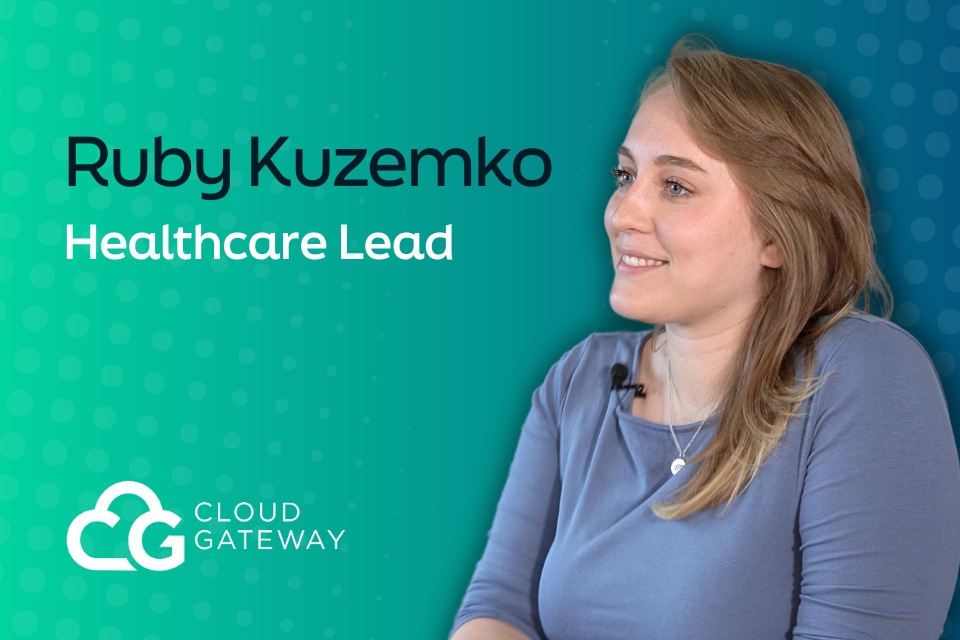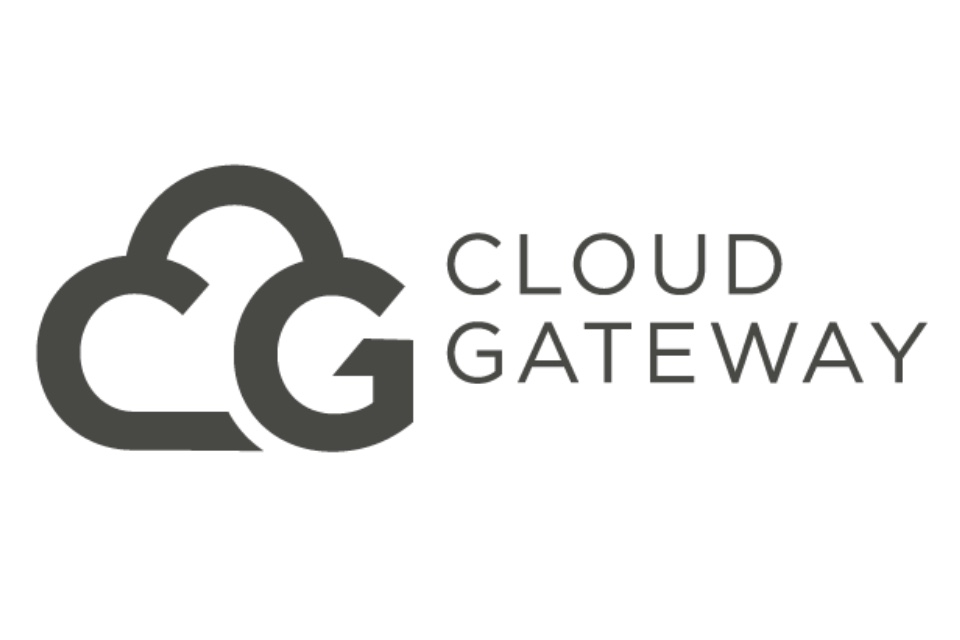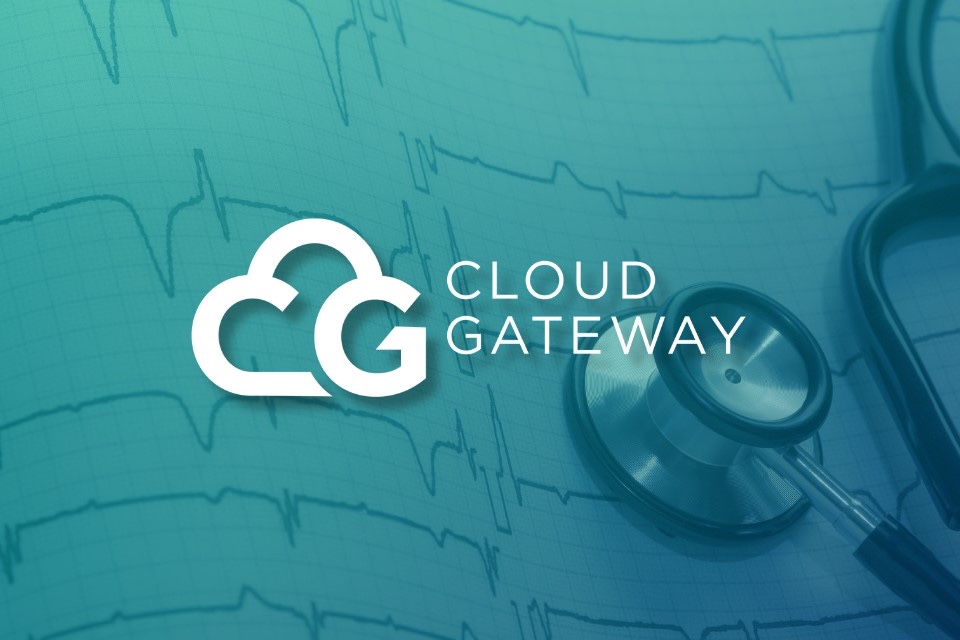In the latest instalment of our care industry executive interview series we spoke to Ruby Kuzemko (pictured), Healthcare Lead at Cloud Gateway, about the cyber threats faced across the sector, the opportunities presented by cloud computing to help scale IT infrastructure flexibly, the transformative nature of 5G and Network as a Service (NaaS) when it comes to remote monitoring at IoT solutions, and the ability of technology to positively impact the health & wellbeing of patients…
Tell us about your company, products and services.
Cloud Gateway is a specialist technology provider, blending cutting-edge connectivity and security products with specialist expertise and support.
Our solutions enable secure data sharing within our customers’ ecosystem and beyond, delivering quicker digital outcomes and improved efficiency. Our platform is unique in the UK market because it’s built in software, offering public and private sector customers a comprehensive way to monitor their network and security infrastructure, as well as the flow of data.
Cloud Gateway is an accredited provider of connectivity for the Health and Social Care Network (HSCN) and the Public Services Network (PSN).
What have been the biggest challenges the Care industry has faced over the past 12 months?
The care sector faces significant IT challenges. Cyber security threats have increased in recent years, in the form of ransomware attacks and data breaches, exposing risk to organisations who process and store sensitive health information. The sector also faces inefficiencies caused by legacy systems that hinder integration and create data silos.
And what have been the biggest opportunities?
Cloud computing enables the UK care sector to scale IT infrastructure flexibly, securely store vast amounts of data, and enhance real-time collaboration among care teams, streamlining case management and care plan sharing across providers. The expansion of telemedicine and virtual care improves access to remote consultations, especially for rural and underserved areas, while electronic care records (ECRs) improve data accessibility, reduce errors, and streamline administrative processes, freeing up staff to focus on patient care amidst increasing demand and workforce challenges.
What is the biggest priority for the Care industry next year?
In 2025, seamless interoperability will be a priority in the UK care sector. We need to break down data silos across hospitals, primary care, social care, and care homes by enabling patient data to flow seamlessly across the healthcare ecosystem. The development of interoperable systems will support patient-centered care by reducing errors, duplication, and miscommunication, while standardisation through common data protocols like HL7 and FHIR will ensure effective communication. Simultaneously, the sector will face growing pressure to adopt green IT practices, such as energy-efficient data centers and sustainable digital solutions, aligning with broader environmental goals.
What are the main trends you are expecting to see in the market next year?
The adoption of 5G and Network as a Service (NaaS) will transform the UK care sector by providing ultra-low latency and high-speed connectivity for telemedicine, remote monitoring, and IoT devices, enabling efficient, real-time health data transmission. 5G will expand telehealth capabilities, supporting high-definition virtual consultations and reaching under-served areas, while facilitating reliable data flow from wearables and smart devices for better patient monitoring.
What technology is going to have the biggest impact on the market this coming year?
In 2025, I think Network as a Service (NaaS) will play a pivotal role in transforming the UK care industry by providing the necessary infrastructure for seamless data sharing, secure communication, and the scaling of new technologies. NaaS will enable cost-effective, flexible, and reliable connectivity that supports remote care, AI applications, patient-centered care, and the digitalisation of healthcare. It will help care providers stay agile, innovate faster, and deliver higher-quality care, all while managing cybersecurity and compliance challenges.
Next year we’ll all be talking about…?
Wearable and IoT-enabled health devices, such as smartwatches, fall detection sensors, and medication trackers, will revolutionise care by providing real-time health data and enabling continuous, personalised monitoring for patients at home.
Which person in, or associated with, the Care industry would you most like to meet?
Wes Streeting, as the UK’s Secretary of State for Health and Social Care, would be an excellent person to engage with on various aspects of the UK care system. Given his role and political perspective, I’d be keen to understand his position on the challenges, policies, and reforms needed in the healthcare and social care sectors.
What’s the most surprising thing you’ve learnt about the Care sector?
I have been shocked to learn how many care organisations are stuck in unsuitable lengthy network contracts, which can potentially impact their efficiency, adaptability, and financial health.
You go to the bar at a big industry event – what’s your tipple of choice?
I enjoy a pint of lager, my favourite brand is Brixton.
What’s the most exciting thing about your job?
Engaging with IT and other professionals in the healthcare sector provides a valuable opportunity to identify and implement optimal solutions to their challenges. Working in healthcare is particularly fulfilling, as the outcomes of our efforts have tangible, real-world impacts on individuals’ lives. This direct connection to improving people’s well-being enhances the sense of purpose and reward in the work we do.
And what’s the most challenging?
Establishing connections with people at the appropriate time, when they are best positioned to discuss digital transformation, is essential. I recognise that shifting priorities and demanding schedules can make it challenging to determine the most suitable moments to sustain meaningful conversations.
What’s the best piece of advice you’ve ever been given?
“Focus on what you can control, and let go of what you cannot.”







